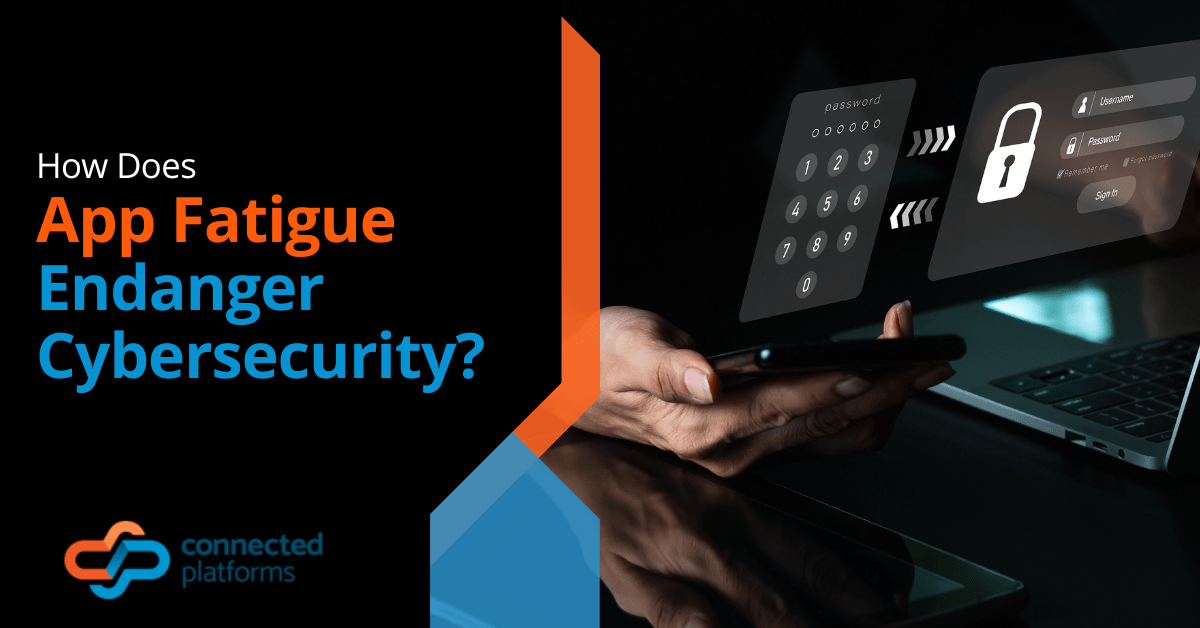The average Australian has over 100 apps on their phone. That’s more than people living in the US, UK, and China. Many people have a love/hate relationship with their apps, they really like the convenience of using them, but not the constant beeps and alerts.
And beyond the apps on our smartphones, there are PC apps, notifications that come from websites, and cloud-based tools. Plus, there are a growing number of IoT devices that have their own attention needs.
Most people have to contend with their own personal apps as well as the apps they use at work. Juggling between the two can begin to wear a person down.
All these different pieces of the technology ecosystem are vying for our time through push notifications, alerts, and update prompts. A new term that you might begin hearing is based on this fight for our attention. It’s “app fatigue.”
App fatigue is the feeling of frustration or exhaustion that employees can experience when they have to contend with too many apps on a regular basis. There’s a constant need to switch between apps, read or click an app notification, and remember multiple logins.
This continuous barrage of app-related activities can cause dissatisfaction and loss of productivity. Additionally, many organisations have apps they don’t even use, so all these apps are costing them money. 71% of organisations have “orphaned apps” and 97% aren’t completely sure which of their apps are actually being used by employees.
In addition to the impact on productivity, job satisfaction, and cloud waste, app fatigue also has a negative impact on cybersecurity.
Ways Cybersecurity Can Be at Risk from App Fatigue
Updates Get Ignored
Think about all the various app messages and prompts you get per day. Some of these are “help” guides that invite you to learn a new tip, others are alerts that you have a new message or action to take. There are also important security update prompts.
When users are already overwhelmed with too many app notifications, they are likely to either turn off or ignore update prompts from their apps. This increases the risk of vulnerabilities being present in the corporate network.
More Apt to Use Weak Passwords
The more apps you have to work with, the more passwords you need to create to log into them. The more apps someone uses, the higher the likelihood that they’ll begin reusing passwords and creating weak passwords, both factors that make it easier for a hacker to breach a user credential and gain access to an account.
Easier to Fall for Phishing Attacks
What’s a phishing message in the barrage of other app alert messages? It’s often overlooked and mistaken for a legitimate email or text message.
When employees are feeling fatigued by all the incoming notifications by email, text, and on-device prompt from apps, they can more easily fall for a phishing message that is spoofed to look like one of these app alerts.
Cybersecurity Hygiene Gets Lost
As employees feel like they are beholden to their apps, constantly switching between one or the other, they can easily let cybersecurity hygiene fall by the wayside.
They get sloppy when it comes to keeping personal and work details on a device separate, they may share passwords with co-workers, or store business data in a non-secure manner.
Fatigue can lead to ambivalence about cybersecurity, which in turn, increases the risk to the company of a human-error-caused data breach.
Approximately 88% of data breaches are caused by human error.
How to Combat App Fatigue to Improve Network Security
Eliminate Unnecessary Business Apps
Companies often introduce too many apps. Business owners and executives feel they are in a race to stay on top of the latest new technology trends. Some managers like an app and implement it for their department, even though it does something another company app already does.
As much as AUD$11,993 is lost per year by companies due to apps that most or all employees aren’t using, but the organisation is paying for.
Do a cloud app review by surveying employees on which apps are necessary to their workflow. Get rid of unnecessary apps.
Train Employees on App Fatigue
Employees can be experiencing app fatigue, but not really understand what it is or how to avoid it. It’s estimated that most smartphone users spend 85% of their time using just five apps. Encourage employees to remove apps they aren’t using, both for company and personal data security and to remove a little of that app fatigue from their lives.
Manage Notifications
Some notifications can be managed on an administrative level and some on a user level. Work with employees to reduce the number of notifications they receive for non-essential items (such as a “quick tip” type notification). This can help reduce the number of distractions per day that are impacting productivity and cybersecurity.
Need Help with a Cloud App Use & Security Assessment?
Don’t risk a cloud breach. Connected Platforms can help your Brisbane area business gain visibility into all the apps you are paying for and which ones employees are using.
Contact us for a free consultation. Call (07) 3062 6932 or book a coffee meeting online.




